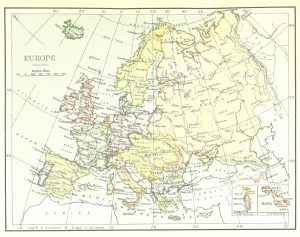The trade of agricultural machinery between the United States and Saudi Arabia has a long history and is an important aspect of their economic relationship. This article provides an overview of the trade relations between the two countries, including the historical background, current trade relations, and key players in the market. It also discusses the challenges and opportunities in this trade, such as tariffs and trade barriers, technological advancements, and market demand and trends. Furthermore, the article explores the impact of US-Saudi agricultural machinery trade on the economy, including job creation and employment, growth of the agricultural sector, and foreign direct investment. Lastly, it examines the government policies and regulations that affect this trade, such as trade agreements and negotiations, import and export regulations, and subsidies and incentives.
Key Takeaways
- The trade of agricultural machinery between the US and Saudi Arabia has a long history and plays a significant role in their economic relationship.
- Tariffs and trade barriers pose challenges to US-Saudi agricultural machinery trade, but technological advancements and market demand offer opportunities for growth.
- US-Saudi agricultural machinery trade contributes to job creation, employment, and the growth of the agricultural sector in both countries.
- Government policies and regulations, including trade agreements, import and export regulations, and subsidies, influence the trade of agricultural machinery between the US and Saudi Arabia.
- Foreign direct investment is an important aspect of US-Saudi agricultural machinery trade, promoting economic development and collaboration between the two countries.
Overview of US-Saudi Agricultural Machinery Trade
Historical Background
In the early 20th century, the United States and Saudi Arabia began their agricultural machinery trade relationship. American manufacturers saw an opportunity to export their advanced machinery to support the growing agricultural sector in Saudi Arabia. Over the years, this trade has evolved and expanded, with both countries benefiting from the exchange of agricultural machinery and expertise.
The trade relationship between the United States and Saudi Arabia in the agricultural machinery sector has a long history. It has been characterized by the import of American machinery to meet the growing needs of the Saudi agricultural sector. This partnership has played a crucial role in the development and modernization of Saudi Arabia’s agriculture industry.
To facilitate this trade, both countries have established trade agreements and regulations that promote fair and mutually beneficial trade. These agreements have helped to reduce trade barriers and ensure a smooth flow of agricultural machinery between the two nations.
Current Trade Relations
In our current trade relations with Saudi Arabia, we have seen both challenges and opportunities. Tariffs and trade barriers have posed obstacles to the smooth flow of agricultural machinery between our countries. However, recent technological advancements have opened up new possibilities for collaboration and innovation. The market demand and trends in Saudi Arabia also present a promising landscape for the growth of our agricultural machinery exports. Overall, we are actively navigating the complexities of the trade landscape to foster mutually beneficial partnerships.
Key Players in the Market
In the US-Saudi agricultural machinery trade, there are several key players that shape the market. Manufacturers play a crucial role in producing high-quality machinery that meets the specific needs of the agricultural sector. Distributors ensure that these machinery products reach the farmers and agricultural businesses efficiently. Government agencies regulate the trade and enforce policies to maintain fair competition and protect the interests of both countries. Industry associations provide a platform for collaboration and knowledge sharing among the players in the market. Together, these key players contribute to the growth and development of the US-Saudi agricultural machinery trade.
Challenges and Opportunities in US-Saudi Agricultural Machinery Trade
Tariffs and Trade Barriers
In navigating the challenges of tariffs and trade barriers, we must consider the impact on both the US and Saudi agricultural machinery industries. Tariffs can significantly affect the cost of importing and exporting machinery, making it crucial for businesses to carefully analyze the potential financial implications. Additionally, trade barriers such as import restrictions and licensing requirements can create obstacles for market entry and expansion. It is important for both countries to address these barriers and work towards a more open and mutually beneficial trade environment.
- Tariffs can impact the cost of importing and exporting machinery
- Trade barriers can create obstacles for market entry and expansion
- Both countries should work towards a more open and mutually beneficial trade environment
Technological Advancements
In recent years, technological advancements have revolutionized the agricultural machinery industry. We have witnessed the emergence of cutting-edge technologies that have significantly improved the efficiency and productivity of farming operations.
One of the key advancements is the integration of precision farming techniques, which utilize sensors, GPS, and data analytics to optimize crop management. This technology enables farmers to make data-driven decisions regarding irrigation, fertilization, and pest control, resulting in higher yields and reduced environmental impact.
Additionally, the adoption of autonomous machinery has gained traction in the agricultural sector. These self-driving machines can perform tasks such as planting, harvesting, and spraying with minimal human intervention. Not only does this increase efficiency, but it also addresses labor shortages and reduces the physical strain on farmers.
Furthermore, the use of smart farming applications has become increasingly prevalent. These applications leverage the power of mobile devices and cloud computing to provide real-time monitoring and control of agricultural operations. Farmers can remotely manage irrigation systems, monitor crop health, and receive alerts for potential issues, enhancing overall farm management.
The integration of these technological advancements in the US-Saudi agricultural machinery trade presents exciting opportunities for both countries. By embracing these innovations, we can enhance productivity, reduce costs, and contribute to sustainable agricultural practices.
Market Demand and Trends
Market Demand and Trends
In the current market, sustainability is a key factor driving demand for agricultural machinery. Efficiency and environmental impact are also significant considerations.
- Sustainable farming practices
- Adoption of precision agriculture
- Increasing demand for autonomous machinery
It is vital to utilize an effective third-party collection partner to keep distressed accounts from becoming write-offs. Our skilled team will keep your distressed Accounts Receivable performing.
Impact of US-Saudi Agricultural Machinery Trade on the Economy
Job Creation and Employment
In the realm of job creation and employment, the US-Saudi agricultural machinery trade has had a significant impact. The trade has led to the creation of numerous job opportunities in both countries, contributing to economic growth and stability. Skilled workers have been in high demand, particularly in the manufacturing and construction sectors, as the trade requires expertise in the production and maintenance of agricultural machinery.
Additionally, the trade has fostered collaboration between US and Saudi companies, leading to knowledge transfer and the development of new skills. This exchange of expertise has not only benefited the agricultural sector but has also had a positive spillover effect on other industries.
To further support job creation and employment, it is crucial for both governments to continue fostering a favorable trade environment and investing in workforce development programs. These programs can provide individuals with the necessary skills and training to excel in the agricultural machinery trade, ensuring a sustainable and thriving workforce for years to come.
Growth of Agricultural Sector
The growth of the agricultural sector has been a significant driver of economic development. Technological advancements have enhanced productivity and efficiency, leading to increased output and profitability. This growth has also created job opportunities and stimulated foreign direct investment. See the table below for a snapshot of the sector’s economic impact.
| Economic Impact |
|---|
| Job Creation |
| GDP Growth |
| FDI Inflows |
Foreign Direct Investment
Foreign direct investment plays a crucial role in the US-Saudi agricultural machinery trade. Investments from foreign companies contribute to the growth and development of the sector, bringing in new technologies and expertise. These investments not only create job opportunities but also stimulate economic growth. By attracting foreign direct investment, the agricultural machinery market in both countries can expand and innovate.
In addition to financial benefits, foreign direct investment also promotes knowledge transfer and collaboration. Partnerships between US and Saudi companies can lead to the exchange of ideas, research, and development of new agricultural machinery technologies. This collaboration can drive advancements in the sector and enhance the competitiveness of both nations in the global market.
To encourage foreign direct investment, governments can implement policies and regulations that provide a favorable business environment. Streamlining investment procedures and offering incentives can attract more foreign companies to invest in the US-Saudi agricultural machinery trade. By fostering a conducive investment climate, both countries can reap the benefits of increased foreign direct investment and strengthen their agricultural machinery industries.
Government Policies and Regulations
Trade Agreements and Negotiations
In our analysis of the US-Saudi agricultural machinery trade, we closely examine the impact of trade agreements and negotiations on the market. These agreements play a crucial role in shaping the trade landscape between the two countries. Bilateral trade agreements between the US and Saudi Arabia have facilitated the exchange of agricultural machinery, creating opportunities for both exporters and importers.
Additionally, ongoing negotiations between the two nations aim to further enhance trade relations and address any existing barriers. These negotiations focus on reducing tariffs, streamlining import and export regulations, and promoting fair competition in the market.
To ensure a smooth and mutually beneficial trade environment, it is important for both countries to continue engaging in constructive dialogue and reaching agreements that foster growth and innovation in the agricultural machinery sector.
Import and Export Regulations
When it comes to import and export regulations, compliance is key. It is important for us to understand and adhere to the regulations set by both the US and Saudi Arabian governments. This ensures smooth and legal trade between our two countries.
To navigate these regulations effectively, we rely on our team of experts who are well-versed in international trade laws. They stay up-to-date with any changes or updates to the regulations, allowing us to make informed decisions and avoid any potential penalties or delays.
In addition, we maintain open communication channels with relevant government agencies to ensure we are aware of any new requirements or restrictions. This proactive approach helps us stay ahead of the curve and maintain a strong position in the market.
Overall, our commitment to compliance and staying informed about import and export regulations is crucial for the success of our US-Saudi agricultural machinery trade.
Subsidies and Incentives
In terms of subsidies and incentives, government support plays a crucial role in promoting the US-Saudi agricultural machinery trade. The governments of both countries provide various forms of support to their respective agricultural sectors, including financial assistance, tax incentives, and research and development grants.
Additionally, both the US and Saudi Arabia have implemented policies to encourage the adoption of advanced agricultural technologies. These policies aim to enhance productivity, reduce costs, and improve the overall efficiency of the agricultural machinery sector.
Furthermore, the governments of both countries have established trade agreements and regulations that facilitate the flow of agricultural machinery between the two nations. These agreements help to create a favorable business environment and ensure fair competition in the market.
Overall, the combination of government support, technological advancements, and favorable trade policies creates a conducive environment for the growth of the US-Saudi agricultural machinery trade.
Government policies and regulations play a crucial role in shaping the debt collection industry. These policies are designed to protect consumers and ensure fair practices by debt collectors. At Debt Collectors International, we understand the importance of adhering to these regulations and providing ethical debt collection solutions. Our team of experts is well-versed in the latest government policies and regulations, allowing us to navigate the complex landscape of debt collection with ease. Whether you are a creditor looking for assistance in recovering outstanding debts or a consumer seeking guidance on your rights, Debt Collectors International is here to help. Contact us today to learn more about our debt collection solutions and how we can assist you in resolving your financial challenges.
Frequently Asked Questions
What is the current status of US-Saudi agricultural machinery trade?
The current status of US-Saudi agricultural machinery trade is…
What are the key challenges faced in US-Saudi agricultural machinery trade?
Some key challenges faced in US-Saudi agricultural machinery trade include…
What are the opportunities for growth in US-Saudi agricultural machinery trade?
There are several opportunities for growth in US-Saudi agricultural machinery trade, including…
How do tariffs and trade barriers impact US-Saudi agricultural machinery trade?
Tariffs and trade barriers have a significant impact on US-Saudi agricultural machinery trade…
What technological advancements are influencing US-Saudi agricultural machinery trade?
Technological advancements such as…
What is the role of government policies and regulations in US-Saudi agricultural machinery trade?
Government policies and regulations play a crucial role in US-Saudi agricultural machinery trade…





